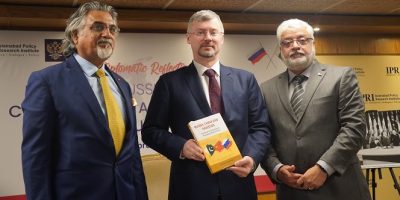144 Pakistani undergrads head this fall to U.S. campuses

ISLAMABAD, JUL 22 (DNA) – Approximately 144 Pakistani undergraduate students received scholarships to study in the United States for one semester under the Global Undergraduate Exchange Program (Global UGRAD) program funded by the U.S. government.
Starting this September, the participants will take undergraduate classes at leading U.S. colleges and universities, as well as attend service-learning programs and professional development workshops as part of their academic and cultural immersion in the United States.
“The United States has a long tradition of embracing international students. I am confident you will represent your nation with honor,” said Christopher Fitzgerald, Acting Deputy Chief of Mission at an event preparing the scholarship recipients for the
exchange. “When you come home to Pakistan, I know you will become leaders in your own communities and bring what you learned in the United States to those around you.”
“The group of students here represent the best of Pakistan,” said the United States Educational Foundation in Pakistan Executive Director Rita Akhtar.
“They are selected on merit from thousands of applicants from every part of this country: from Tharparkur to Hunza, from Gwadar to Swat.”
Ujala Bashir, a spring 2018 Global UGRAD alumna, shared her exchange journey and how the community service experience at HAVEN in Bozeman, Montana, inspired her to develop a crisis center for domestic violence survivors in Pakistan.
“My greatest accomplishment was when a survivor I had coached on the phone contacted HAVEN to tell me that I had saved her life,” said Ujala.=DNA
============
Related News

Pakistan announces minimum Fitrana, Fidyah rates for 2026
ISLAMABAD, FEB 9: The Council of Islamic Ideology (CII) has announced the minimum rates forRead More

Russian ambassador outlines vision for deeper Pakistan ties
ISLAMABAD, FEB 9 /DNA/ – In a comprehensive address on the eve of Russia’s Diplomats’Read More


Comments are Closed